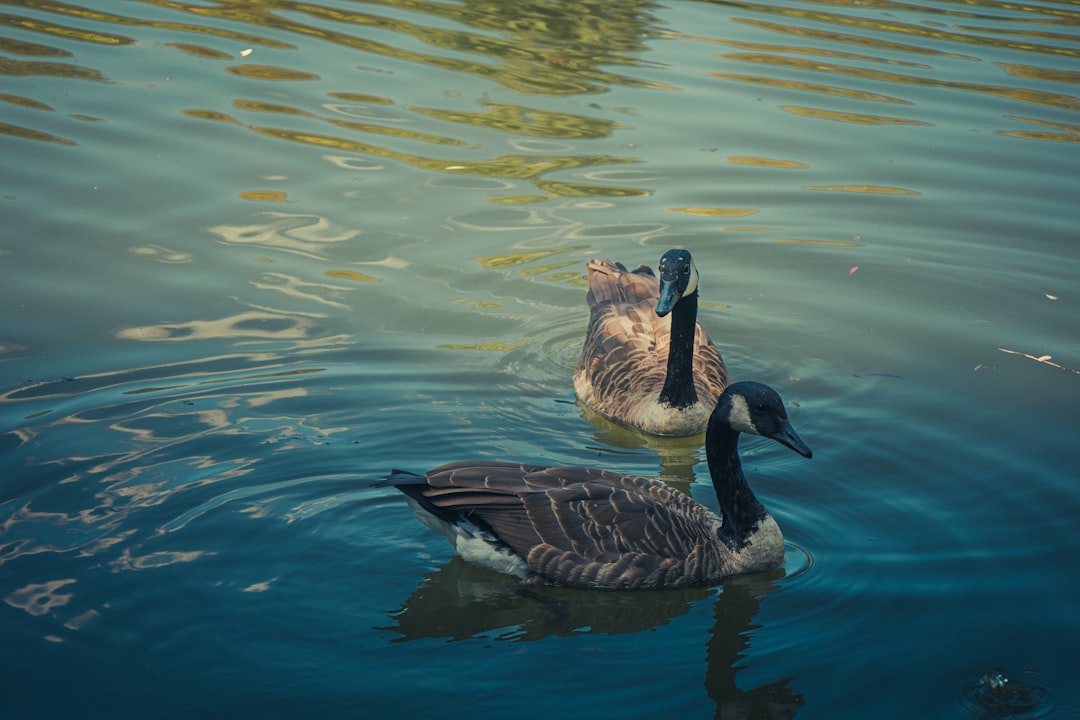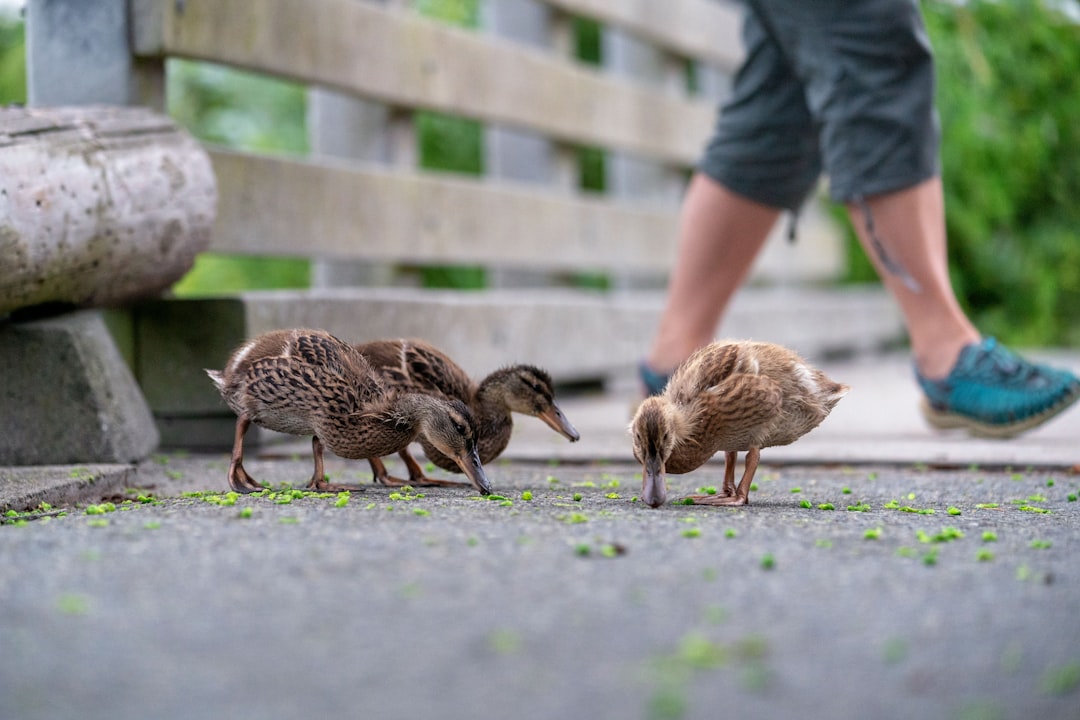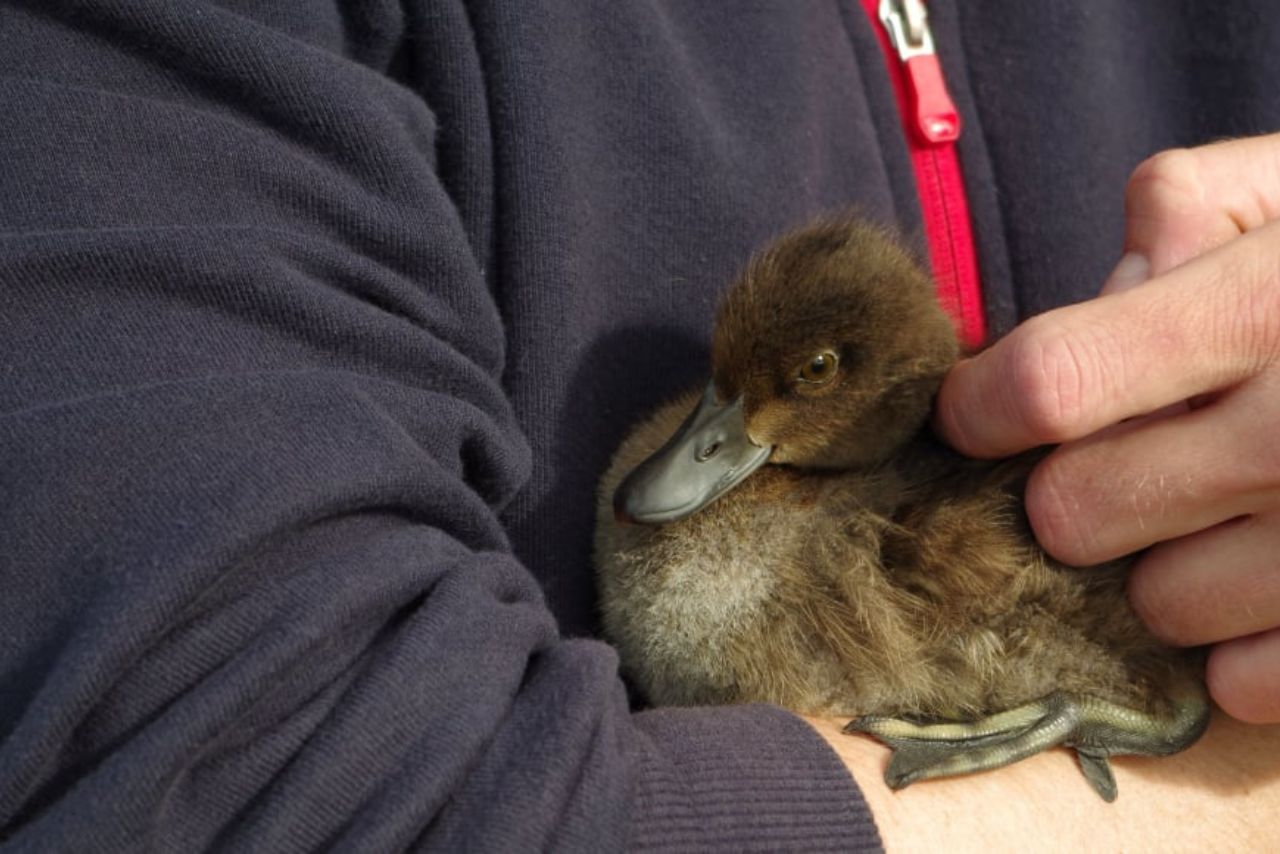Ducks are fascinating creatures that are known for their unique physical features and behaviors.
One of the questions that often come up is how do ducks see humans? It’s an interesting question because ducks have different eyesight abilities compared to humans.
In this article, we will explore how ducks see humans, what they perceive about our appearance and behavior, and how this understanding can help us interact with these birds in a safe and respectful way.
Ducks have a different visual system compared to humans, which means they perceive objects and colors differently.
Their eyes are located on the sides of their heads, giving them a 360-degree view of their surroundings.
However, this also means they have a narrower field of binocular vision, which affects their depth perception.
Ducks also have a higher sensitivity to light, allowing them to see in low-light conditions.
When it comes to humans, ducks are likely to see us as large, looming figures with distinct features and movements. It’s important to approach ducks slowly and calmly to avoid startling them.
Exploration Of Vision Of Ducks About Human
Overall, ducks see humans differently than we see ourselves. By understanding how they perceive us, we can better understand their behavior and interact with them in a safe and respectful way.
It’s crucial to remember that ducks are wild animals and should be treated as such. If you encounter ducks in the wild, observe them from a distance and avoid getting too close or feeding them.
By respecting their space and natural habitat, we can appreciate these fascinating creatures while also ensuring their well-being.
Monocular Vs. Binocular Vision In Ducks
Ducks have a monocular and binocular vision, which means they can use one eye to focus on distant objects while the other eye scans for predators.
This unique visual system gives them an advantage in detecting danger and finding food.
When it comes to their perception of humans, ducks may not be able to recognize our facial features like we do, but they can notice our body language and movements.
Therefore, it’s essential to approach ducks with caution and avoid making sudden or threatening gestures.
They use their eyesight to navigate through water, locate food, and avoid predators.
Understanding how ducks see humans can help us coexist with these birds in a respectful manner.
When interacting with ducks in parks or natural areas, it’s important to give them space and avoid making sudden movements or loud noises that could startle them.
How Ducks See the World?
Feeding ducks is also discouraged as it can disrupt their natural diet and cause health problems.
How Ducks See Humans?
Ducks are also sensitive to colors, but they perceive them differently than humans.
They have better color vision in the blue and green spectrum, but their ability to see red is limited.
This means that red objects may appear grey or brown to ducks.
This could be important to consider when placing decoys for hunting or creating bird-friendly gardens.
Overall, understanding how ducks see humans can help us appreciate these birds even more and interact with them in a way that doesn’t disrupt their natural behaviors and habitat.
Duck Vision vs Human Vision
Although ducks see the world differently than humans, it’s important to remember that they are intelligent animals with their own unique behaviors and personalities.
By respecting their natural habitat and behavior, we can coexist with these birds in a way that benefits everyone.
So next time you see a duck, take a moment to observe its beauty and appreciate its place in the ecosystem.
And if you do choose to interact with them, remember to approach slowly and calmly, give them space, and avoid any sudden movements or loud noises.
By doing so, we can help preserve the wonder of these magnificent creatures for generations to come.
What Are Our Ducks Looking At?
Ducks have a remarkable ability to see underwater, thanks to their specialized eyes.
Their eyes can adjust to different light levels and focus on objects both above and below the water’s surface.

This allows them to locate prey, such as fish, insects, and plants, which they can filter out using their unique bill structure.
Additionally, ducks have a third eyelid that acts as a protective barrier while swimming underwater.
In summary, ducks see humans as large figures with distinct features and movements.
They perceive colors differently than humans, with better color vision in the blue and green spectrum but limited ability to see red.
Do Ducks Recognize Humans?
While ducks may not recognize humans as individuals, they can become conditioned to associate humans with food.
This is why it’s important not to feed ducks in parks or natural areas.
Feeding them can cause them to lose their natural foraging abilities and become dependent on human handouts, which can lead to overpopulation and health problems.
It’s also important to note that interacting with wild ducks should be done from a safe and respectful distance.
Getting too close can cause unnecessary stress for the birds, which can affect their behavior and well-being.
What Do Humans Look Like to Ducks?

In terms of size, humans appear much larger to ducks due to their smaller stature.
They also have distinct features and movements that ducks can perceive from a distance.
However, it’s important to remember that ducks are wild animals and should be respected as such.
Interacting with them from a safe and respectful distance is the best way to appreciate their beauty without causing harm or disruption.
Ducks have been a part of our ecosystem for thousands of years, and they play an important role in maintaining the balance of wetland habitats.
Why Do Ducks Chase Humans?
While ducks may chase humans, it’s important to note that this behavior is typically a defensive response.
Ducks are protective of their nests and offspring, and they will often try to ward off potential threats by chasing them away.
Additionally, if ducks have become accustomed to being fed by humans, they may chase after them in search of food.
However, it’s important not to encourage this behavior by feeding them.
Feeding ducks can cause them to lose their natural foraging abilities and become dependent on human handouts.
How Do Ducks Feel About Humans?
While ducks do not have emotions in the same way humans do, they can certainly perceive and respond to our presence.
If approached calmly and respectfully, ducks will usually go about their business without much concern for nearby humans.
However, if a person gets too close or makes sudden movements, a duck may become alarmed or defensive and try to chase them away.
Why Do Ducks Hiss At Humans?
Ducks may hiss at humans as a defensive response.
This behavior is often seen when ducks feel threatened or cornered and are trying to warn the potential threat to stay away.
It’s important to remember that hissing is a duck’s way of communicating that they are uncomfortable or scared, and it’s best to back away slowly and give them space.
Why Are Ducks Not Afraid Of Humans?
While some ducks may be wary of humans, many have become accustomed to our presence in urban areas.
This is often due to humans feeding them regularly, which can cause them to lose their natural fear of people.
In addition, ducks are highly adaptable and have learned to live alongside humans in parks and other urban environments.
However, it’s important to remember that just because a duck isn’t afraid of humans doesn’t mean it should be approached or disturbed.
Ducks are wild animals and should always be treated with respect and caution.
Last Talk: How Do Ducks See Humans?
It is important to understand that ducks are wild animals and should be treated with respect and caution.
Observing them from a safe distance, avoiding feeding them, and respecting their natural behaviors is crucial for coexisting with these beautiful creatures in a manner that benefits everyone.
Understanding how ducks see humans can help us appreciate their unique beauty without causing harm or disruption to their environment.
The next time you spot a duck, take a moment to observe its unique characteristics from afar and appreciate its place in nature.
By doing so, we can contribute to preserving the balance of wetland habitats and coexist with these fascinating creatures in a way that benefits both humans and ducks alike.
FAQs
Can ducks see humans clearly?
Yes, ducks can see humans as distinct figures with unique movements and features.
How do ducks perceive colors compared to humans?
Ducks have better color vision in the blue and green spectrum but limited ability to see red.
Why do ducks hiss at humans?
Ducks may hiss at humans as a defensive response when they feel threatened or cornered.
Do all ducks react the same way towards humans?
No, some ducks may be wary of humans while others have become accustomed to our presence in urban areas.
What is the best way to approach ducks without causing harm or disruption?
The best way to approach ducks is calmly and from a safe distance, avoiding any actions that could harm or disrupt their natural behaviors




